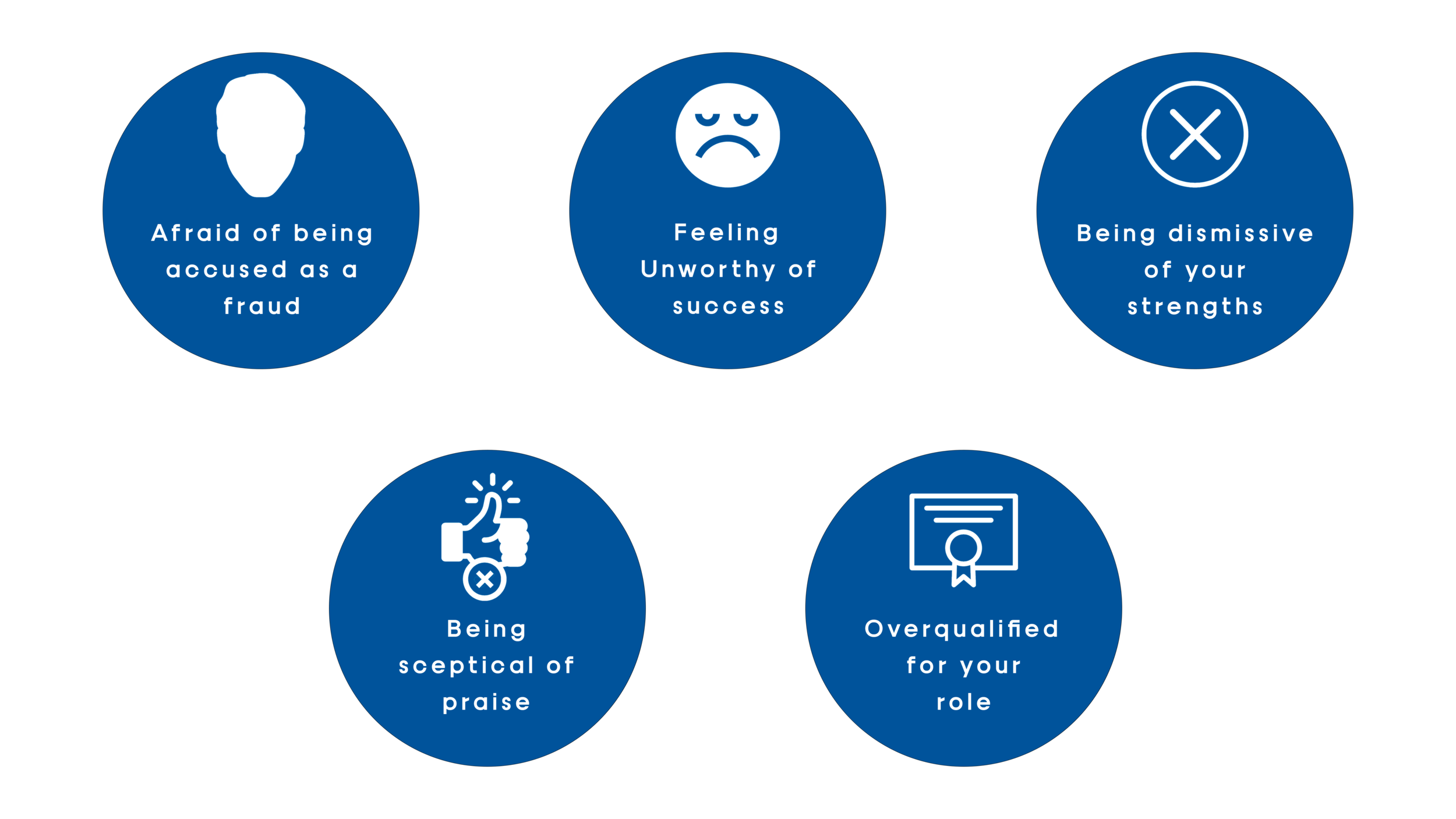Imposter Syndrome: Are we our own worst enemy?
Let us paint a picture - you’ve recently landed yourself a rather prestigious role at your workplace which has many responsibilities and requires a certain expertise to perform without error. Throughout your time in this role, you work alongside likeminded people who share a similar skillset as you. Looking around, it appears that everyone is performing perfectly. You quickly begin to ask yourself ‘a person like me couldn’t possibly triumph these individuals?’ Before you’ve even started, you’ve already doubted yourself and set the bar extremely high. Very quickly, you’ve left the possibility of success to others just because you perceive your ‘skills’ aren’t adequate enough.
If this scenario seems relatable, then you could be suffering from a form of intellectual self-doubt called Imposter Syndrome. Imposter Syndrome isn’t officially classed as a mental illness, however it’s usually accompanied by anxiety and depression due to its mentally destructive nature. Although the example we used focused on a working environment, Imposter Syndrome can affect each and every part of your life, usually subconsciously. Research has shown that 70% of individuals will experience signs and symptoms of imposter syndrome at least once in their life. The phenomenon is mostly experienced as a result of a new job, goal or academic study and is often triggered by the fear of being unsuccessful with said task.
Symptoms of the Syndrome
As Imposter syndrome impacts your perception of confidence, it can hinder your whole persona.
Here are five common symptoms to look out for in yourself and your peers:
the difference.
Let’s break these down further:
1. Firstly, we have the fear of being accused as a fraud. This happens when you just don’t recognise your own strengths. When we do this, it’s easy to begin questioning our purpose in a position and ask ourselves what got us there in the first place. This is a trap many of us can fall into, and isn’t helped by the fact that sometimes, we can go weeks if not months without someone complementing our performance.
2. Next up we have feeling unworthy of success. This symptom is common with individuals in high positions who don’t feel worthy of their accomplishments. Despite all the evidence which may prove their skills, self-doubt overpowers this causing them to wonder if they are unworthy of the position they have been given.
3. Similar to this, being dismissive of your strengths is another attribute to the syndrome. An example of this is not taking responsibility for an achievement. This could be completing a large project in the workplace, learning a new language or instrument etc. Becoming dismissive of this does more harm than good. Sometimes its good to brag and sell-yourself, as it may motivate people to take something on- similar to how you would have probably been motivated by somebody else showing their strengths in the first place.
4. Being sceptical of praise is a sign that you’re developing poor trust with your peers and sometimes the world in general. For many, praise doesn’t come along often, so when you do get it, embrace it, don’t just shrug it off and say, ‘they’re probably just in a good mood, it wasn’t that good’. Saying this is one of the most punishing and unfair statements we could say to ourselves, especially when nine times out of ten we are probably warranted the praise. People rarely give praise to somebody who’s underperforming.
5. Finally, we have cluelessness to being overqualified. This is an aspect of Imposter Syndrome which combines all the above mentioned symptoms and can sometimes cause you to hit a road-block in your life. If you are feeling unworthy of success, being sceptical of praise and dismissing your strengths, you're going to react by working far harder than you should. Most people with Imposter Syndrome are fantastic workers from a technical perspective, as they never feel as though they have done enough; they are never pleased with the work they produce or tasks they achieve. This attitude forces a constant search for self-improvement, meaning you may be doing a job you’re over-qualified to do, but remain unaware of your talents.
How to feel worthy of your Success?
Now that we’ve discussed the effects Imposter Syndrome can have on an individual, what can we do to prevent it?
1. Be willing to to acknowledge genuine praise - This is a no-brainer when it comes to improving our well-being. The next time somebody gives any kind of compliment (which they will, it’s human nature), don’t just let it fly by, use it as a sign that you are working hard and are heading in the right direction. Praise also gives us valid intel: “why did I receive that praise?” “Is it something that I can repeat or learn from?”
2. Give yourself a break - Sometimes simply giving ourself a break is all we need. We all need to slack off a little sometimes. Doing this allows us to re-charge and prepare for a session of hardware rather than continuously being too hard on yourself.
3. Preach your talents to others- this is one of the easiest ways to earn acceptance and appreciation for your own skills. Teaching and mentoring other people will give a sense of achievement unlike any other; people actually want to learn from you!
In summary: People of all professions all around the world can suffer with Imposter Syndrome and usually don’t even know it. It’s time we took a step back and looked at everything we’ve already achieved. It’s time to appreciate our talents, embrace praise and stop comparing ourselves to other people. If you ever feel unworthy of your position, the likelihood is that it is well deserved.



